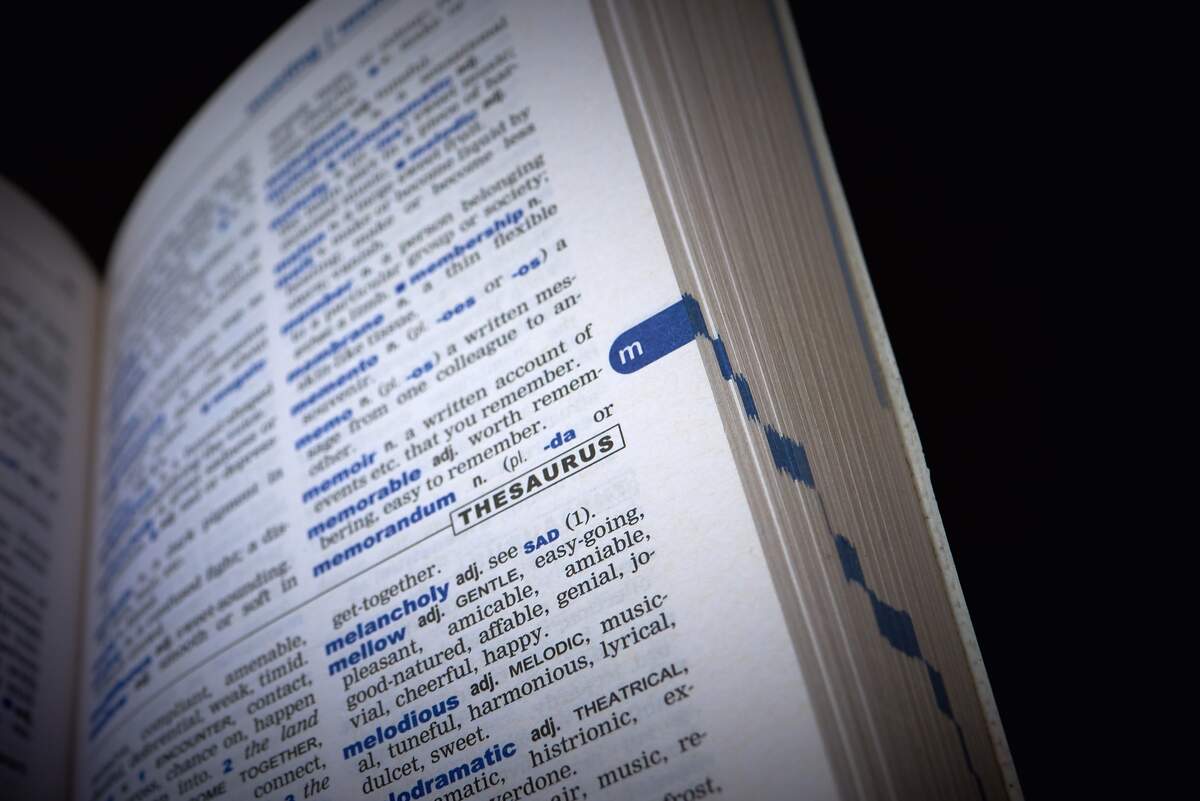

Thesaurus Day
Also known as
National Thesaurus Day
Observed
annually on January 18th
Dates
Hashtags
Sources
https://bookriot.com/history-of-the-thesaurus/
https://en.wikipedia.org/wiki/Roget%27s_Thesaurus
https://www.britannica.com/biography/Peter-Mark-Roget
https://www.holidayinsights.com/other/thesaurusday.htm
https://www.anrdoezrs.net/links/100298379/type/dlg/https://www.newspapers.com/image/776409
https://www.anrdoezrs.net/links/100298379/type/dlg/https://www.newspapers.com/image/817748992/
https://www.thesaurus.com/e/writing/thesaurus-day/
Have you ever written an essay and searched for more appropriate words to use during the process? If so, you likely used a thesaurus! Thesauruses are used to improve writing: they assist in curtailing repetition and in finding a word that is a better fit. They allow the author to learn new words, and for the reader to better understand the reading. Thesauruses list synonyms, words with similar or almost the same meanings, as well as antonyms, words that have opposite meanings. Thesaurus Day, which has been marked at least since the mid-1990s, celebrates Peter Roget, creator of Roget's Thesaurus of English Words and Phrases, considered to be the first modern thesaurus. Roget was born on today's date in 1779. Naturally, Thesaurus Day celebrates thesauruses too and encourages their appreciation and use.
In the late sixteenth and early seventeenth centuries, a thesaurus was something similar to a dictionary, in that it listed the meanings of words. The English word thesaurus was in use by 1730, and comes from the Greek word thēsaurós, meaning "storehouse," "treasure," or "treasury." The word took on a new meaning when Roget, a British doctor and philologist, published Roget's Thesaurus of English Words and Phrases in 1852.
Peter Roget was born in London, England. He studied medicine at the University of Edinburgh and was one of the founders of a medical school in Manchester. In 1814, he invented the log slide rule. He started working on his thesaurus in 1840 at the age of 61, after his retirement from medical practice. The first edition was published in 1852. Only 1,000 copies were printed.
Words in Roget's thesaurus are organized into six primary classes: Abstraction Relations, Space, Matter, Intellect, Volition, and Affections. They are further separated into divisions and sections. This is based on a system of verbal classification that Roget started in 1805. Roget mentioned the classification in the forward to the book's first edition:
It is now nearly fifty years since I first projected a system of verbal classification similar to that on which the present work is founded. Conceiving that such a compilation might help to supply my own deficiencies, I had, in the year 1805, completed a classed catalogue of words on a small scale, but on the same principle, and nearly in the same form, as the Thesaurus now published.
The utilitarian teachings of Jeremy Bentham helped inspire Roget to create the thesaurus. Roget said he wanted to help "those who are painfully groping their way and struggling with the difficulties of composition." He said in the forward to the first edition:
Since my retirement from the duties of Secretary to the Royal Society, however, finding myself possessed of more leisure, and believing that a repertory of which I had myself experienced the advantage might, when amplified, prove useful to others, I resolved to embark in an undertaking which, for the last three or four years, has given me incessant occupation...
The first edition contained 15,000 words, and more words have been included in each subsequent edition. There were 443,000 words in the eighth edition. Each edition follows Roget's original classification system. Roget died on September 12, 1869, but his thesaurus has never gone out of print. Besides Roget's Thesaurus of English Words and Phrases, well-known thesauruses include Webster's New World Roget's A-Z Thesaurus, the Oxford American Desk Thesaurus, and the Historical Thesaurus of English, the world's largest thesaurus, which includes words from the earliest written records up to the present day. Today, these and all thesauruses—as well as the man behind an early thesaurus—are celebrated with Thesaurus Day.
How to Observe Thesaurus Day
Ways to observe the day include:
- Use a thesaurus while reading or writing.
- Teach others how to use a thesaurus.
- Pick up a new thesaurus. Why not get a copy of Roget's Thesaurus of English Words and Phrases?
- Use Thesaurus.com, which is based on Roget's thesaurus.
- Explore the Historical Thesaurus of English.
- Read The Man Who Made Lists: Love, Death, Madness, and the Creation of Roget's Thesaurus or Peter Mark Roget: The Man Who Became a Book.





















